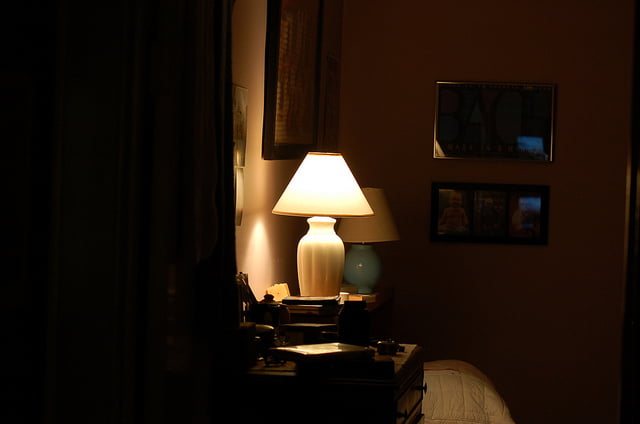A new study suggests that light at night, specifically in the bedroom, increases the risk for breast cancer. The finding comes from an Israeli case–control study of 1679 women, published in the February issue of Chronobiology International.
This is the third study to suggest that women who have lights on in the bedroom are at greater risk for breast cancer than those who sleep in total darkness.
However, all 3 of these studies have the same serious potential flaw, according to an expert in the field. Richard Stevens, PhD, professor of cancer epidemiology at the University of Connecticut in Farmington, told Medscape Medical News that in each of these studies, researchers asked women to recall whether they slept with the lights on years earlier, and how often during the night they switched on the lights. In addition, the breast cancer patients were asked these questions after they had been diagnosed the disease, he pointed out.
“This introduces the potentially serious error of recall bias,” he said.
However, Dr. Stevens, who was the first to suggest that there might be a link between electrical light and breast cancer, said that there is mounting evidence of an association between light at night and breast cancer. There has also been a sea change in attitudes toward the idea. “When I first proposed this theory 23 years ago, cancer researchers just smiled and dismissed it; now they are saying that it’s interesting and plausible.”
In the latest study, researchers from the University of Haifa, Israel, used data that had been collected using questionnaires in the Breast Cancer in Northern Israel study.
The information on light-at-night exposure was obtained from individual interviews (conducted from 2006 to 2008), and women were asked about bedroom light levels, light coming in the room from outside the bedroom, the availability of shutters in the bedroom, and sleeping with the television on. Women were asked to rate their night-time bedroom light levels from 1 to 4, where 1 represented complete darkness, 2 was low light, 3 was average light, and 4 was very strong light (with all the lights on).
The intensity of bedroom light emerged as the strongest predictor of breast cancer, the researchers report. After controlling for education, ethnicity, fertility, and alcohol consumption, light at night in the sleeping habitat significantly increased the risk for breast cancer.
This is the “first study to have identified an unequivocal positive association between bedroom light intensity and breast cancer risk,” the researchers conclude.
…
To read the whole story click here
Via http://www.medscape.com
Photo by Renaissance Vector
Related posts

Israeli Medical Technologies That Could Change The World

Harnessing Our Own Bodies For Side Effect-Free Weight Loss

Missing Protein Could Unlock Treatment For Aggressive Lung Cancer




Facebook comments